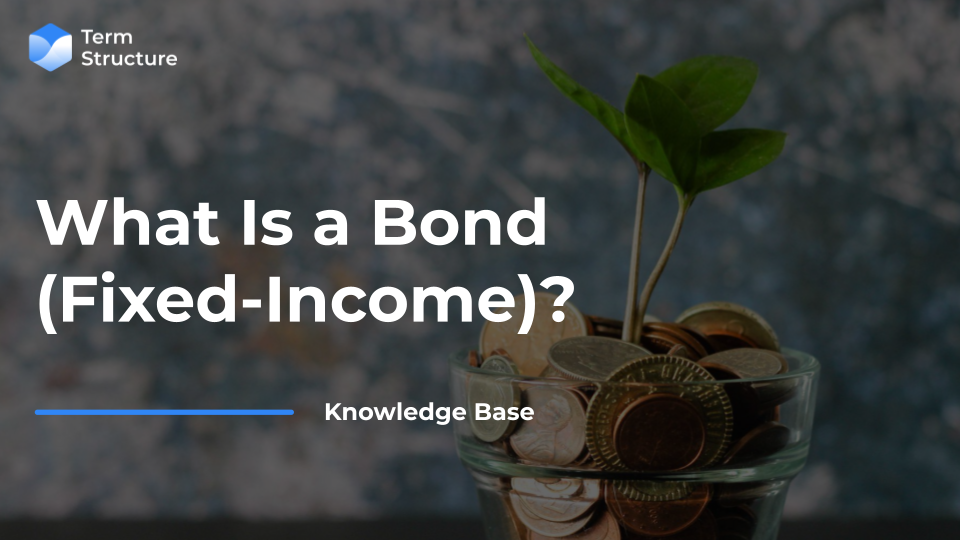What is a Bond (Fixed-Income)?

A bond is a debt security that represents a loan made by an investor to a borrower, typically a government or a corporation. When you purchase a bond, you are essentially lending money to the issuer in exchange for periodic interest payments and the return of the principal amount at maturity. Bonds are considered fixed-income securities because they pay a fixed amount of interest over a specified period.
Some key features of bonds:
- Face Value (Par Value): The face value, or par value, is the nominal value of the bond, and it represents the amount that will be repaid to the bondholder at maturity.
- Coupon Rate: The coupon rate is the fixed annual interest rate paid by the bond issuer to the bondholder. It is expressed as a percentage of the face value. For example, a bond with a face value of $1,000 and a coupon rate of 5% will pay $50 in annual interest.
- Maturity Date: The maturity date is the date on which the bond issuer is obligated to repay the principal amount to the bondholder. Bonds can have short-term or long-term maturities, ranging from a few months to several decades.
- Issuer: Bonds can be issued by governments, municipalities, corporations, and other entities to raise capital for various purposes, such as financing infrastructure projects, expanding operations, or managing cash flow.
- Yield (Yield to Maturity): The yield to maturity (YTM) of a bond is a measure of the total return an investor can expect to receive if the bond is held until it matures. YTM takes into account not only the periodic interest payments (coupon payments) but also any potential capital gains or losses based on the difference between the bond's current market price and its face value at maturity. Investors use YTM to compare the relative attractiveness of different bonds and to assess their potential returns. If the YTM is higher than the current yield or coupon rate, the bond is priced at a discount; if it's lower, the bond is priced at a premium. If the YTM is equal to the coupon rate, the bond is priced at par value.
- Market Price: The market price of a bond can fluctuate based on changes in interest rates, credit risk perceptions, and market conditions. Bonds may trade at a premium (above face value) or a discount (below face value).
Bonds provide investors with a predictable stream of income through interest payments and return of principal at maturity. They are considered relatively safer investments compared to stocks but still carry risks, such as interest rate risk and credit risk. Investors often include bonds in their portfolios to achieve diversification and manage risk.
